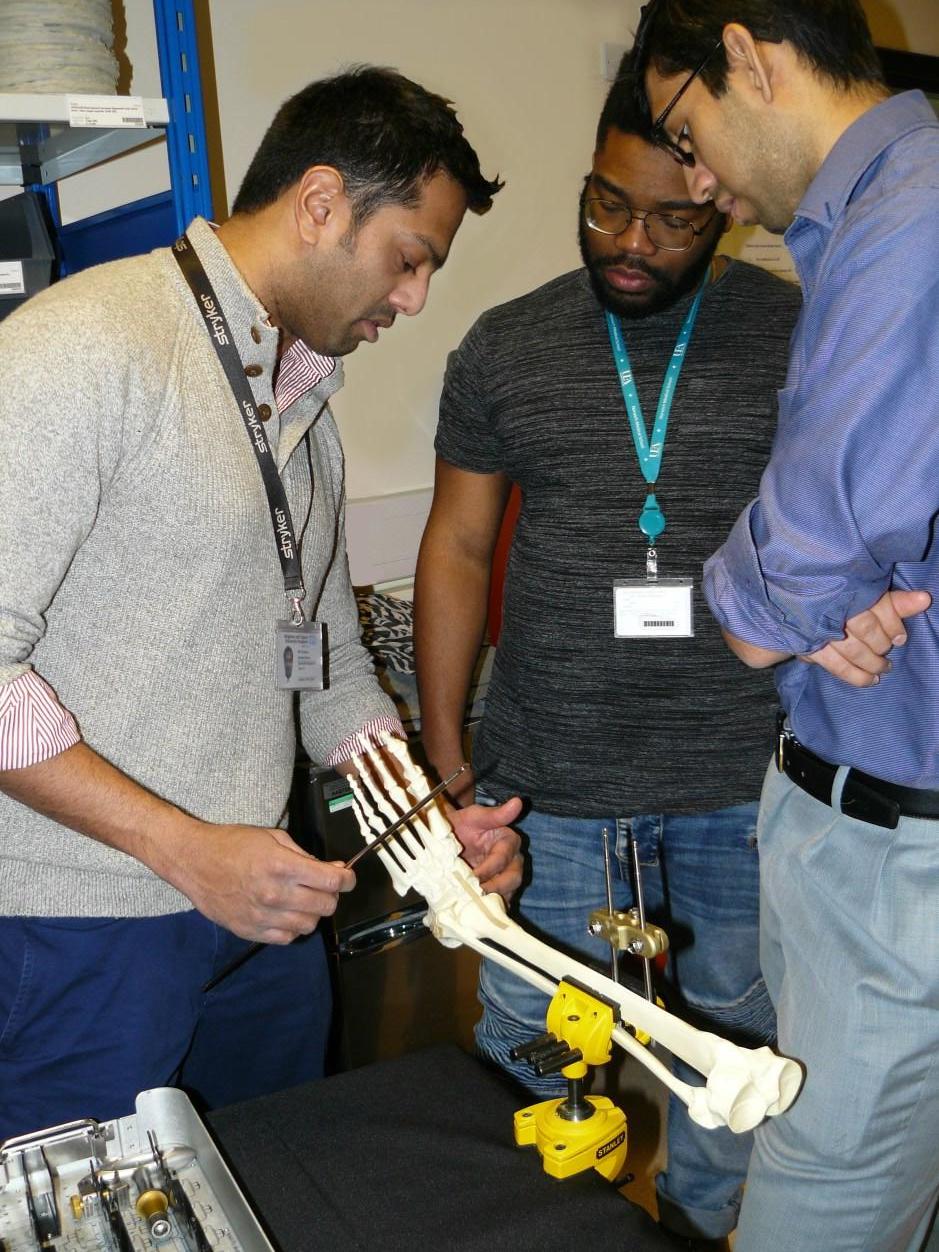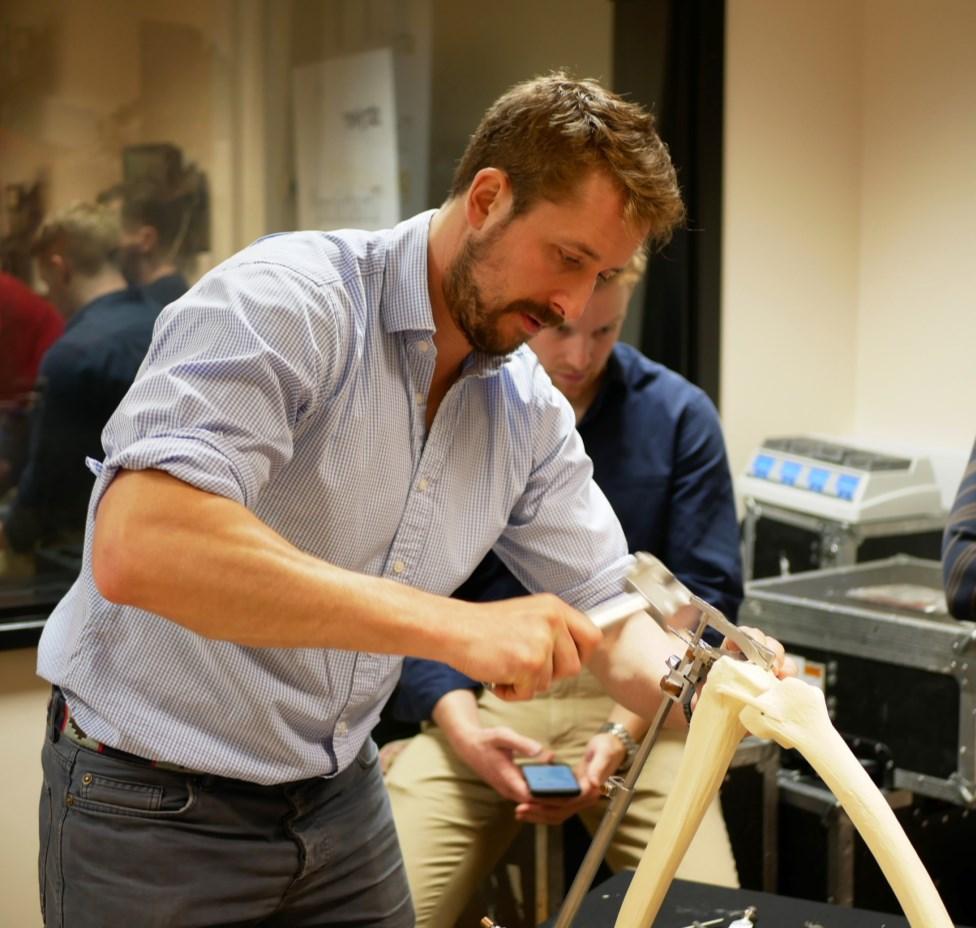
3 minute read
Orthopaedics
The Orthopaedic Department is spread across all the Brighton and Sussex University Hospital trust (BSUH) sites including the Royal Sussex County Hospital (RSCH), the Princess Royal Hospital (PRH), the Royal Alexandra Children’s Hospital (RACH) and the Sussex Orthopaedic Treatment Centre (SOTC).
Acute trauma including fracture clinics are held at the RSCH and elective work is done at the PRH either within the Trust or SOTC. The department sees over 3000 acute admissions and approximately 5000 elective cases per year and covers all specialties, including spinal surgery and paediatrics. The department comprises 25 consultants,12 registrars and 10 CT 1/2 level doctors.
Advertisement
The Trust has also recently received national awards for its innovative Virtual Fracture Clinic service.
Teaching
Trainees are allocated to attend clinics, including the new patient fracture clinic and a full spectrum of follow up clinics. Junior doctors are also assigned to theatre and are expected to regularly and

proactively seek training opportunities to develop their surgical expertise. In addition to the weekly, formal teaching sessions, Clinical Governance meetings and Journal Club offer additional learning opportunities on a regular basis. The department can offer training in trauma including trauma reconstruction with frames, pelvic trauma as well as arthroplasty, spine surgery, hand surgery, shoulder surgery, paediatric orthopaedics, knee surgery and foot and ankle surgery. To complement their surgical skills, trainees can gain management experience, teaching, research and audit skills.
Research
Trainees are encouraged to contribute towards research activity in the department and to produce at least one audit project per six months, using data from
ORTHOPAEDICS
the patient management system. There is opportunity for clinical and non- clinical research including anatomical and biomechanical projects in conjunction with Brighton and Sussex Medical School. The department runs a bimonthly forum to discuss on-going research issues and to share best practice. All trainees are encouraged to present their academic work at these fora, in particular their clinical cases and audits, their clinical and basic science research, systemic literature reviews as well as their research on educational and clinical management.
WHAT OUR TRAINEES SAY Dr Simon Bellringer
I first worked in the department as a Year One Core Surgical Trainee and have been fortunate enough to return and complete my first year as a Specialty Registrar here. The department operates over several sites offering trainees a wide variety of opportunities.
As a busy Level 1 Major Trauma Centre, the Royal Sussex County Hospital has given me some great experience in dealing with some of the most serious trauma under the guidance of both plastic and trauma surgeons with an interest in major trauma and limb reconstruction.
At the Princess Royal Hospital, a separate Fractured Neck of Femur service working within an established MDM approach, ensures that this vulnerable group of patients receive consultant led care, which is unaffected by the pressures of being a Level 1 Trauma Centre and the Sussex Orthopaedic Treatment Centre offers a wide variety of elective orthopaedic care including primary and revision arthroplasty. As a first year reg-

istrar, I typically spend four days in trauma theatres and 1 day in clinic per week and expect to continue this into my second registrar year with four days in elective theatres and one day in clinic per week. As a teaching hospital, there are regularly 4th year Brighton medical students attached to the department. Bedside teaching is arranged weekly to allow trainees to deliver teaching in small groups and there is an opportunity to be involved in teaching students as part of their 4th year Musculoskeletal Module.
There are a wide variety of research opportunities available as both a junior and senior trainee and several consultants take a particular interest in supporting those who wish to complete audits, present at national and international conferences and produce published research.
There are opportunities to supervise BSMS students completing their Intercalated Research Projects, which I have found was a most rewarding experience. Overall, it’s busy department, and a great place to work. You are guided by a multidisciplinary team of seniors and paramedical staff who are keen to support you to achieve your potential.










